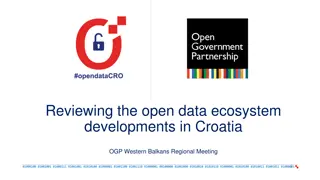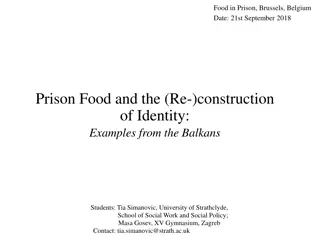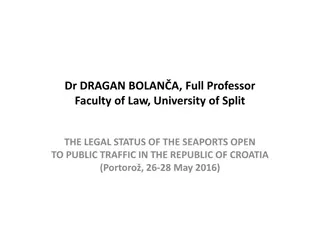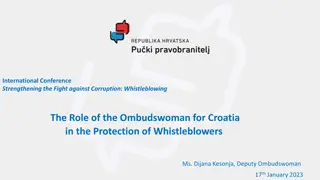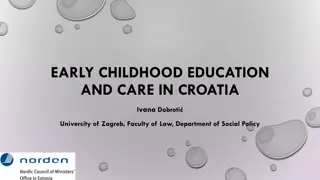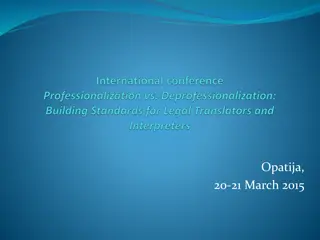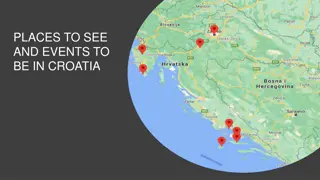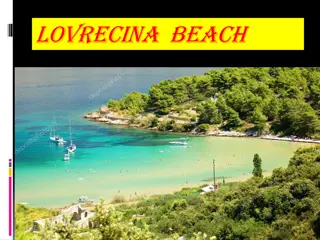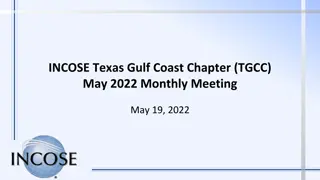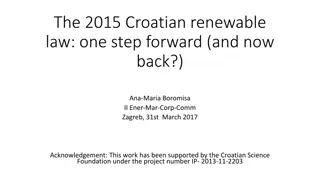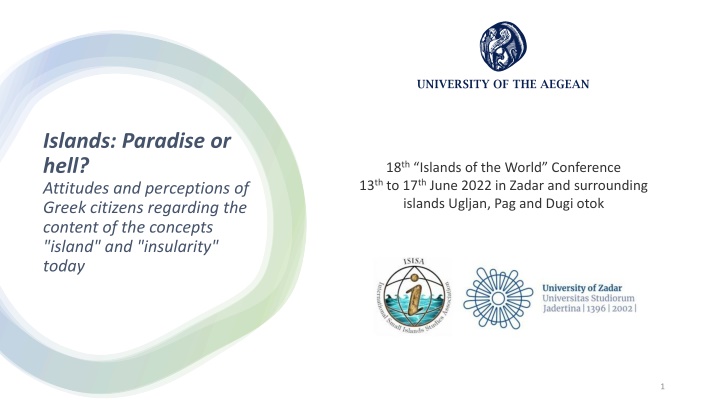
Greek Citizens' Attitudes Towards Islands and Insularity Today
Exploring the perceptions of Greek citizens regarding islands and insularity, this study delves into whether these concepts are viewed as paradises or burdens. The research highlights the importance of understanding locals' attitudes for effective place management and development strategies. Preliminary findings suggest that most populations do not equate islands with exclusion or negativity, challenging the notion that insularity is a disadvantage. By examining these attitudes, the study aims to contribute to a more nuanced understanding of island regions.
Download Presentation

Please find below an Image/Link to download the presentation.
The content on the website is provided AS IS for your information and personal use only. It may not be sold, licensed, or shared on other websites without obtaining consent from the author. If you encounter any issues during the download, it is possible that the publisher has removed the file from their server.
You are allowed to download the files provided on this website for personal or commercial use, subject to the condition that they are used lawfully. All files are the property of their respective owners.
The content on the website is provided AS IS for your information and personal use only. It may not be sold, licensed, or shared on other websites without obtaining consent from the author.
E N D
Presentation Transcript
Islands: Paradise or hell? Attitudes and perceptions of Greek citizens regarding the content of the concepts "island" and "insularity" today 18th Islands of the World Conference 13thto 17thJune 2022 in Zadar and surrounding islands Ugljan, Pag and Dugi otok 1
Authors Authors Angeliki MITROPOULOU, Angeliki MITROPOULOU, PhD Student, Department of Environment, University of the Aegean, University Hill, 81100, Mytilene, Greece, amitro@env.aegean.gr (corresponding author & presenter) Ioannis IoannisSPILANIS, SPILANIS, Professor, Department of Environment, University of the Aegean, University Hill, 81100, Mytilene, Greece, ispil@aegean.gr Athanasios KIZOS Athanasios KIZOS, Professor, Department of Geography, University of the Aegean, University Hill, 81100, Mytilene, Greece, akizos@aegean.gr Ioannis IoannisKATSOUNIS, KATSOUNIS, PhD Student, Department of Shipping, Trade and Transport, University of the Aegean, 82132, Chios, Mytilene, Greece, ykatsounis@stt.aegean.gr Maria LEKAKOU, Maria LEKAKOU, Professor, Department of Shipping, Trade and Transport, University of the Aegean, 82132, Chios, Mytilene, Greece, mlek@aegean.gr Michael CHATZIEFSTATHIOU, Michael CHATZIEFSTATHIOU, Department of Environment, University of the Aegean, University Hill, 81100, Mytilene, Greece, mhatzi@env.aegean.gr 2
Introduction What What is is an an island? island? It is a part of a land surrounded by water. This is perhaps the most plain geographical term that can be used to describe this concept. Is, nowadays, the island a prominent structural unit of scientific analysis or is it still a rather neglected research theme under a continuous (re)definition process in an effort to enhance the visibility of this geographicalentity as a "place" ? Indeed, a theoretical reflection on the "worlds" of the islands, according to which they must be studied on their own terms (and consequently on the terms of the islanders) has not spread as much as expected, despite the great and often intense international debate about destinations, coastal areas, and the blue economy, that is constantly feeding today and other research fieldssuch as tourism. On a practical level, the importance of exploring citizens' attitudes and perceptions of issues regarding places is directly related to place management and promotion issues, and therefore has a direct implementation in the field of applicable public policies and local development strategies. In general, the preliminary findings of the extensive study demonstrate that neither the word "island" nor the concept of "insularity" for most populations - targets studied here are considered synonymous with exclusion and a set of negative concepts, which reinforce the narrative that wants insularity to be in its entirety a "handicap" that does not perceive islanders such from the general population, and consequently not favor island areas. 3
In action We asked island residents We explore the content of the concept island We explore the content islandness of the concept Islands on their own terms ? What does this mean in practice? Methodological highlights: We give emphasis on Greek islands, but the questionnaire can be used for other regions also. We use cluster categorization to group Greek islands and discuss some findings more generally. We avoid the method of case studies, we focus on drawing conclusions that have a more universal coverage. 4
Islands, Islanders & Insularity/ Islandness: Starting remarks Small size: Insufficiency of raw materials and limited efficiency of production factors Regionality and the sense of isolation resulting in high costs of production, transport, infrastructure Rich natural environment and biodiversity as well as the special cultural identity Unstable demographic developments Island features: Insularity as a concept refers to a natural state of an area enclosed by water, mountains or desert. An isolated place, which due to physical and social isolation, has a set of specific characteristics. Therefore, insularity refers to the geographical features of the islands: small size, remote location and isolation, unique social, cultural and natural features. Its traditional view of insularity as a sterile disadvantage may stem from untapped opportunities stemming from "a lack of coherence at the local level between natural resources, human capital and the institutional framework" (Gloersen et al., 2012). However, insularity is more than just a geographical status, a mixture of geographical features. In addition, it is the result of political decisions and various social, economic and social conditions. Insularity/Islandness features: Basic dichotomy: Inhabitants of islands & inhabitants of mainland areas another way to reconsider the erroneous simulation and problematic conceptual and practical connection of the islands with the mainland. The horizontal spatial-development policies that assimilate the island area with the urban continental centers, indifferent to its special physiognomy and geographical characteristics, can not be the basis of an integrated development approach of the islands (Koutsopoulou, 2012). The equation of space through the classic competitiveness strategies, on the one hand does not take into account the special needs of the islands and their comparative advantages and on the other hand does not achieve the set goals of economic prosperity, further altering the island physiognomy (Spilanis et al., 2005). 5
Research question & research gaps What is after all an island? Is it a piece of land surrounded by water? Is it a geographical entity? Is it a construction of the mind? Is it both at the same time? Is it holidays? Is it culture? Is it sun and sand? Is it isolation? Is it heaven or hell? Reference framework : Island Insularity/ Islandness - Islanders Are there differences between the respondents' perceptions depending on whether they are permanent residents of an island or permanent residents of a mainland area? How positively or negatively charged are the concepts of island and insularity? 6
This presentation includes selected findings from a large quantitative survey conducted between 2 and 20 October 2020. An electronic structured questionnaire was used. The topic of the research was "Insularity and Sustainable Development" and aimed at people over 18 years and older who reside in Greece permanently. This research was carried out in the framework of a doctoral dissertation for the Department of Environment of the University of theAegean, which is expected to be completed in 2022. During this period, 1,423 questionnaires were collected, from which the final usable sample of the research with 1,263 questionnaires emerged. Information about the field research It stands out that from the target population emerged two distinct groups: 567 people who stated that their permanent residence is located in one of the 4 main island complexes (Ionia, Dodecanese, Cyclades and Northeast Aegean) and 696 who stated that their permanent residence is in Continental country. The participants in the research - among others - were asked to answer an open-ended question by stating in separate fields two words that come to mind when they hear the word "island". Atotal of 2,409 words were recorded, as some of the participants did not complete a word in the second field. They were also asked to answer a closed question with a degree of agreement / disagreement with specific proposals that sought to give a clearer position on the content of the concept of insularity. 7
Selected Basic Findings Content of the concepts ISLANDS INSULARITY/ISLANDNESS 8
The modern academic community has relied on two rather "strained" topological relations of the islands: 1. The first represents a clear view of the uniqueness of the island, in its unique history and culture, which is shaped and defined by the border between land and sea. 2. he second distinguishes an island from the main country / mainland, and stands on its differences and dependencies on the largest player. Only in 1990 is there a shift in the academic community that begins to emphasize the spatial dimension, focusing on the need to move the focus away from the mainland (and the need to look at everything in relation to them). At that time the "narrative" emerged that the islands should now be studied on their own terms and emphasize the attitudes and perceptions of the islands themselves. Then the birth of the concept of Nissology can be placed in time, which is just trying to delimit the new view of the fields of island studies. What is an island? Theoretical approaches Theoretical approaches 9
The set of answers to the open-ended question about the "two words that come to mind when one hears the word island" were categorized through three distinct phases: In the first phase all the words recorded were coded into 53 categories which varied by geographical characteristics, climatic and weather conditions, island names, locations and concepts related to the trip. What is an island? Open question and coding In the 2nd categorization phase the 53 categories were coded / grouped into 15. Phase 3 focused on creating only 3 categories so that a basic debate in the field of island studies can be concentrated in them, whether the Islands are more hell or paradise whether you live or visit. Frequency analysis was performed using a variable from the set of demographic questions on whether the permanent residence is on an island or not to highlight differences between islanders and people on the mainland. 10
Table 1: Your permanent residence is located on an island ? = YES Research findings deriving from coding the open question Answers Percent of Cases* N Percent Heaven to live in 785 74% 145% When someone mentions to you the word island , which are the two first words that come to mind? Heaven to visit 143 13% 26% Hell to live in/ to visit 140 13% 26% Table 2: Your permanent residence is located on an island ? = NO Answers Percent of Cases Total answers 1068 100% 197% N Percent Heaven to live in 921 69% 136% Heaven to visit 329 25% 49% When someone mentions to you the word island , which are the two first words that come to mind? Hell to live in/ to visit 91 7% 14% 1341 100% 198% Total answers 11
Isolation Results from the closed question: Island residents Residents of mainland 40 Next, we would like you to answer us in case someone mentions the word island, to what extent do you combine the following words with it, where 1 means that you do not identify it at all and 5 that you completely identify it. 35 30 25 20 15 10 5 Exclusion 0 Not at all 2 3 4 Completely DK/DA Island residents Residents of mainland 30 25 20 15 10 Note 5 Inhabitants of islands N = 567 (living in the 4 basic complexes) Inhabitants of mainland N = 696 0 Not at all 2 3 4 Completely DK/DA 12
Paradise Results from the closed question: Island residents Residents of mainland 40 35 Next, we would like you to answer us in case someone mentions the word island, to what extent do you combine the following words with it, where 1 means that you do not identify it at all and 5 that you completely identify it. 30 25 20 15 10 5 0 Not at all 2 3 4 Completely DK/DA Home/ Familiar Holidays Island residents Residents of mainland Island residents Residents of mainland 60 70 50 60 40 50 40 30 30 20 20 10 10 0 0 Not at all 2 3 4 Completely DK/DA Not at all 2 3 4 Completely DK/DA 13
Insularity: interwoven with problems of island areas. Is the position of the islanders themselves accurately recorded?Insularity in institutional texts and its implementation by institutions (in Greece) had several problems and challenges. They usually stayed on paper. Since the introduction of a macro-regional strategy, the EU had stressed the need for a better connection of the island regions with the mainland in order to find a "cure" for the "permanent structural disadvantages" (Declaration 30 - Amsterdam Treaty) of the islands which are connected with exactly this island status. Some academics argue that the conceptual basis of policies for EU islands failed to assess the possibilities and challenges of connectivity and instead insisted on training players to behave according to traditional insularity / isolation systems. Insularity/ Islandness: an academic term or something more? Greece plays an important role in putting island issues decisively on the European agenda during the period when the Amsterdam Treaty was being prepared during the Intergovernmental Conference (1996-1997). On the contrary, in the present work we adopt a more balanced view of the islands, which highlights the liquidity that characterizes the world of the islands, confirming that the main feature of the islands is connectivity and not isolation. In the international academic community, a theoretical attempt is made to give a different, more balanced meaning to the concept of insularity, and thus the dipole emerges: Insularity VS Islandness. For this dipole there is even a position in 2011 by the European Spatial (ESPON).Consequently, a reciprocal negativity at both institutional and theoretical level had essentially trapped the evolution of the very concept of islands but also of insularity interdisciplinary. Planning Observation Network 14
Are you living permanently on an island; Total YES NO Asymp. Sig. (2-sided) ,033 Agree 20,5% 15,4% 17,7% Value 6,808a df 2 Insularity/ Islandness is purely an academic term and does not mean anything in action. Pearson Chi-Square Neither agree nor disagree 14,9% 18,1% 16,7% Disagree 64,6% 66,5% 65,6% Total 100,0% 100,0% 100,0% Are you living permanently on an island; Total YES NO Agree 72,2% 61,9% 66,5% Asymp. Sig. (2-sided) ,000 Insularity is the set of problems that the inhabitants of the islands face in their daily lives. Value 17,734a df 2 Pearson Chi-Square Neither agree nor disagree 17,2% 20,1% 18,8% Disagree 10,6% 18,0% 14,7% Total 100,0% 100,0% 100,0% Are you living permanently on an island; Total YES NO Agree 65,0% 65,7% 65,3% Asymp. Sig. (2-sided) ,235 Insularity expresses the possibilities and dynamicsof the islands. Value 2,900a df 2 Neither agree nor disagree 22,7% 24,8% 23,8% Pearson Chi-Square Disagree 12,4% 9,6% 10,8% Total 100,0% 100,0% 100,0% 15
In general, in the field of Island Studies and Nissology Contribution regarding the researches concerning Greek Islands Methodologically: Qualitative tools and not the usual case studies The number of answers collected for the size of the questionnaire Basis for future research Possibility of repetition - creation of time series A step towards giving emphasis on the inhabitants of the areas who are often neglected by the interest groups or are in the epicenter only in the context of tourism research (including the islands as tourist destinations) Administratively because it provides a basis for issues that may be related to place management & marketing which is very important today Contribution of the present research 16
The importance of the point of view of the inhabitants of the islands themselves By adopting this methodology, the research attaches special importance to the attitudes and perceptions of citizens on issues of insularity, but also to the very concept of "island". On a practical level, the importance of exploring citizens' attitudes and perceptions of site issues is directly related to site management and promotion issues and therefore has a direct application in the field of applicable public policies. The emphasis is not on being based on either the ISLANDS = EXCLUSION visa, nor is it predominantly based on the ISLANDS = TOURISM DESTINATIONS. However, even in the context of the islands as a geographical "flagship" of Greek tourism, we must reconsider them in different terms.. Place-making generally refers to the activity of turning a "space" into a "place", through giving meaning to the people who use it (Dovey 1991; Winikoff 1995). For more effective place making in the case of island areas, more needs to be explored what it means to live on an island. That is, to really make sense in terms of the people who "use" a place, an island area. Recognizing that the effectiveness of any policies - especially at the local level - often requires the involvement of citizens as it is ultimately up to them to implement any application, there must be a more systematic record of various issues, attitudes and perceptions of citizens around them even for concepts that at a distance may seem extremely theoretical or non-measurable such as island and insularity. 17
Indicative Bibliography Ca izares, S. M. S., Tabales, J. M. N., & Garc a, F. J. F. (2014). Local residents attitudes towards the impact of tourism development in Cape Verde. Tourism & Management Studies, 10(1), 87-96. Dovey, K. (1991), Melbourne Docklands and the sense of place , Picking Winners: Melbourne s Urban Development Game:ACase Study in Planning, Melbourne s Docklands, Social Justice Coalition, Melbourne. Gloersen, E., Michelet, J. F., Corbineau, C., Giraut, F., Price, M. F., Borowski, D., & Schuiling, R. (2012). GEOSPECS-European perspectives on Specific Types of Territories. Kizos, T., Spilanis, I., & Koulouri, M. (2007). The Aegean Islands: a paradise lost?: Tourism as a driver for changing landscapes. In Europe's Living Landscapes (pp. 332-349). KNNV Publishing. Kizos, T. (2007). Island lifestyles in the Aegean Islands, Greece: heaven in summer, hell in winter?. In Seasonal landscapes (pp. 127-149). Springer, Dordrecht. Paci, D. (2016). From Isolation to Connectivity? The views of the European Union on Mediterranean and Baltic Islands in the 20th and 21th Century. Comparativ, 26(5), 14-28. Winikoff, T. (1995), Places Not Spaces: Placemaking inAustralia, Envirobook Publishing, Sydney. 18
Thank you very much for your attention! Check the new ERASMUS MUNDUS RESEARCH MASTER ! The ISLANDS programme combines thorough training in scientific research with a thematic specialization on Islands and Sustainability. 19







